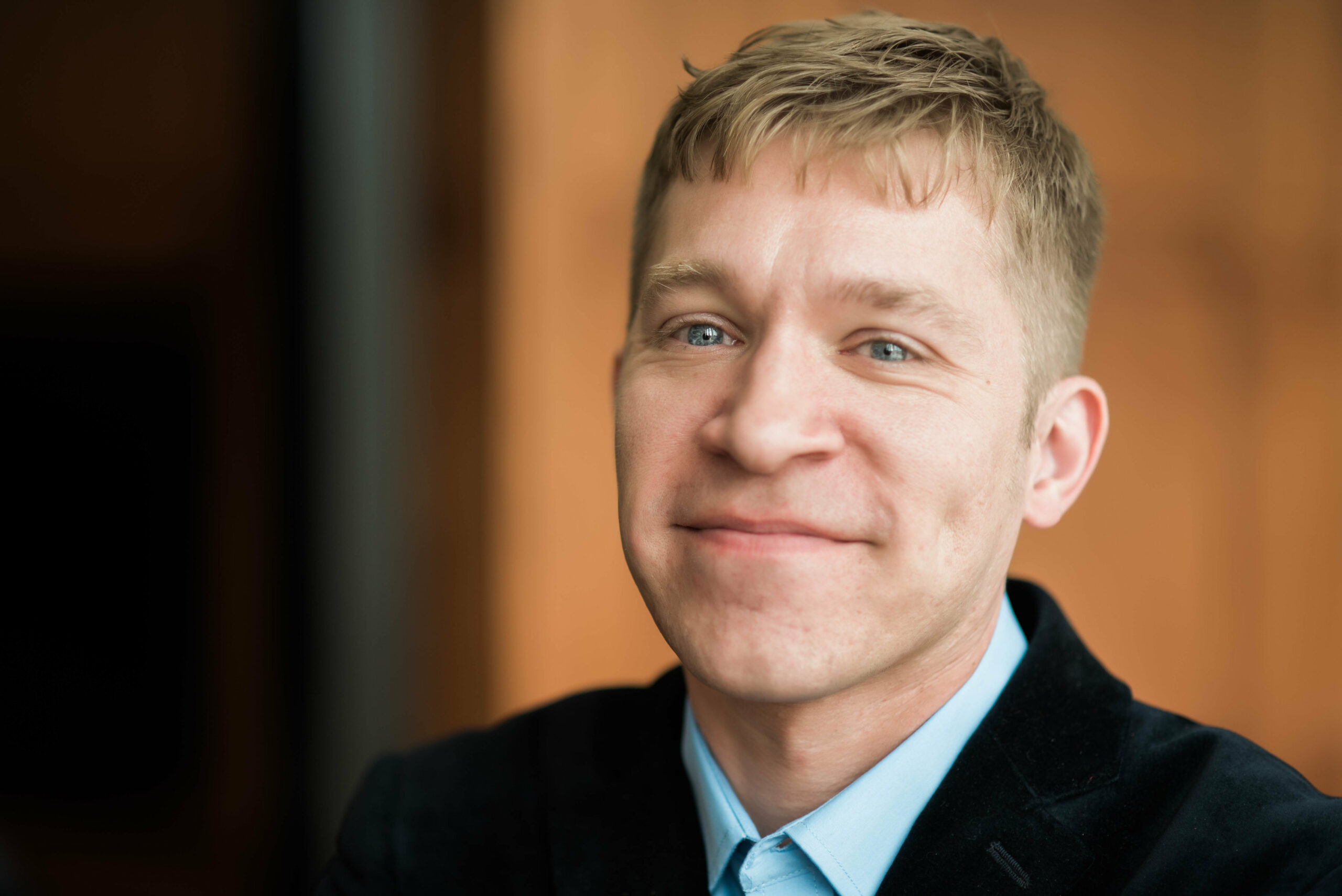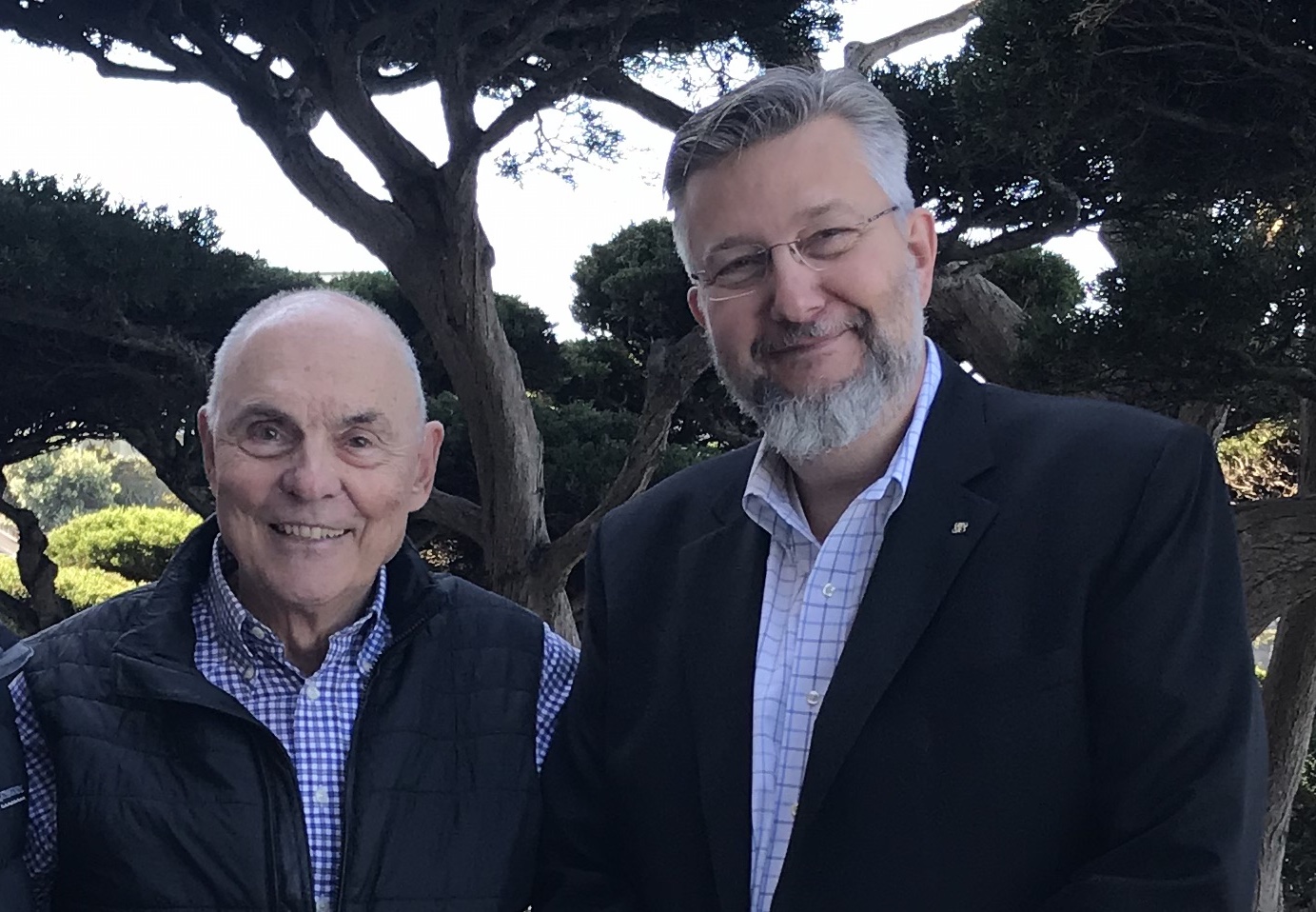Tyler Cowen admits to being somewhat obsessive. The declaration shouldn’t be a surprise, given that the fifty-six-year-old professor juggles a number of high-profile roles and projects. One of the country’s best-known economic theorists (Bloomberg Businessweek once called him “America’s Hottest Economist”), he is also a bestselling author of more than a dozen books, a regular opinion columnist and a popular food blogger. The professor also frequently devours five nonfiction books a day, a talent that helps him when interviewing guests for his popular podcast, “Conversations with Tyler.”
“It’s more or less all I do,” he says of his work. “I have these opportunities and I won’t have them forever, so it’s time to make a push.”
Cowen’s latest undertaking is Stubborn Attachments: A Vision for a Society of Free, Prosperous, and Responsible Individuals, published by Stripe Press in October. The book argues that in order to have sustainable economic growth—and the happiness, stability, and opportunity it engenders around the world–we must focus on the overall well-being of society rather than on individual needs. “If we manage to get right economic growth and human rights, those are the stubborn attachments we ought to have,” he says.
Inspired by the altruism he promotes in his book, Cowen is donating the proceeds of his new book to a man who served as his guide for a single day on a recent trip to Ethiopia. The man impressed Cowen with his intelligence and his sense of responsibility for the ten family members he supports. “He has ambitions to start a business and do better for himself, and I thought, ‘Well, why not?’” says Cowen. “One of the themes of my book is that rich countries being rich is also good for the poorer countries, who benefit by trading with the wealthy ones. I feel that people should live what they write, and that’s my way of doing that.”
When he’s not writing, much of Cowen’s time is devoted to his work as the Holbert L. Harris Chair of Economics at George Mason University and faculty director of the university’s Mercatus Center. Mercatus recently announced that Cowen will lead a new fellowship and grant program called Emergent Ventures to fund and support entrepreneurs who have big ideas on how to improve society. Launched with a $1 million grant from the Thiel Foundation, Emergent Ventures will also provide the winners access to investors and mentors. “I have spent a lifetime trying to find and evaluate talent,” he says, “so I thought I should do this in a more formal venue, backed by specific resources toward that end.”
In keeping with his risk-taking philosophy, Cowen has embraced blogs, online education videos, social media, and podcasts to spread his passion for economics. “I’m always trying to learn something new,” he says. “The different projects are complements to each other. What I learn from one helps with the other.”
Cowen first started blogging in the early 1990s, but the subject was not economics—it was food. Then a professor at University of California, Irvine, each time he ate at a restaurant, he would type up his notes, copy them and hand them out to his colleagues. His coworkers liked his reviews so much that he began posting them on the Internet, long before the word “blog” was used. Today, Tyler Cowen’s Ethnic Dining Guide has a devoted following. “There’s a whole large class of people who only know me as a food blogger and are surprised to find that I’m an economist,” he says.
Since 2003, he and economist and fellow George Mason professor Alex Tabarrok have also published the wildly popular economics blog, Marginal Revolution, which tackles far more than standard economics. Recent topics include the aging audience of television sports and the illegal detainment in a Kenyan hospital of patients who had not settled their bills. “It’s what is running through my mind,” Cowen says. “If the person reads the blog, they know what’s new with me.” In 2012, he and Tabarrok founded a free online educational platform, Marginal Revolution University, to accompany the blog; the site now offers more than 800 free economics education videos and has over 100,000 subscribers to its YouTube channel. Cowen also connects with his audience on Twitter and boasts 116,000 followers.
But the project he thinks has had the greatest impact is “Conversations with Tyler.” Since the podcast’s launch in April 2015, Cowen has interviewed dozens of personalities, from retired basketball star Kareem Abdul-Jabbar and feminist Camille Paglia to novelist Jhumpa Lahiri and political forecaster Nate Silver. The common theme of the series: how to learn from others. “The goal is to show people here’s still someone you can learn from even if at the end of the day you’re not convinced,” he says. “We’re in the process of losing this with heightened polarization, so I think it’s important to defend that.”
Embracing so many forms of media has paid off for Cowen. “I didn’t think it was possible for an economist to have so many readers, so that’s come as a huge shock to me.” He was particularly surprised because he built the majority of his audience after he turned 40. “Most economists who become well known… it happens to them when they are quite young,” he says. “I’ve spent so many years working to improve myself in different ways, so I have had an unorthodox career trajectory.”
The beginnings of that career started when he was a child growing up in Hillsdale, New Jersey. His father, president of the local Chamber of Commerce, frequently brought home magazines from the Foundation for Economic Education. Cowen showed so much interest in them that when he was thirteen, his father took him to one of their seminars. Cowen was hooked and started reading every library book on economics he could find.
Meanwhile, his mother accompanied him to chess tournaments. In 1977, at the age of 15, he became the youngest person to win the New Jersey Open Championship. Chess taught him many lessons, including how to handle being in the public eye, but he realized it would not help him with his career in economics. He was still a teenager when he retired from playing.
Now Cowen watches chess online for fun. He also relaxes by playing tennis with his wife Natasha, shooting hoops on his own and spending time with his twenty-eight-year-old daughter, Yana. But it’s a good bet that he’s thinking about economics even when he’s relaxing. “My goal is to teach economics to more people than anyone else in the history of the world,” he says. Then he laughs. “I do not expect to achieve that goal.” He may not, but he’s going to give it his best shot.










